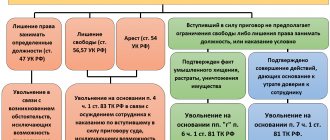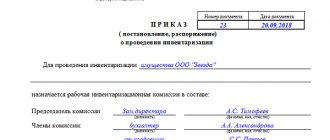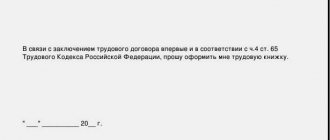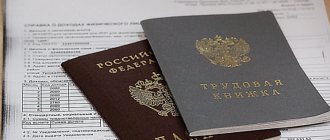The essence of the proceedings
To go to court, you first need to refer to the Resolution of the Plenum of the Supreme Court of the Russian Federation No. 2, issued on March 17, 2004 (as amended on November 24, 2015).
It describes in detail everything about the jurisdiction and jurisdiction of cases, including labor disputes in court, and indicates the rules that must be considered when considering claims related to the Labor Code of the Russian Federation.
Based on the norms in part one of Article 22 of the Code of Civil Procedure of the Russian Federation, disputes arising in the course of labor relations between employees and employers are considered in different categories of courts.
Which court handles labor disputes depends on the severity of the conflict. The magistrate must make a sole decision in cases when he receives a claim to declare illegal a refusal to get a job or a transfer to another job or position that does not correspond to the qualifications and the drawn up and signed contract.
The district court deals with disputes about the resumption of work or deals with the reasons for dismissal, the recovery of wages in favor of someone illegally deprived of work for the period of forced absence, or additional payment of the difference in wages paid in case of an unproven and illegal transfer to another job.
In addition, with sufficiently reasoned evidence in favor of the employee whose rights have been infringed, the amount of moral damage caused, which was caused by unlawful acts on the part of the boss, is recovered. Claims for damages are heard by district courts.
It is worth noting that Article 393 of the Labor Code protects the rights of workers, while there is no need to pay state duty for the claim.
According to Order No. 2, in cases of disagreement in the implementation of an employment contract, the case goes to the district or magistrate judge in accordance with the general rules established in Articles 23−24 of the Code of Civil Procedure of the Russian Federation.
Only the supreme courts of the republics can deal with cases on the legality of ongoing strikes that are collective in nature, in the order of a meeting (part four of Article 413 of the Labor Code).
Labor Dispute Commission: features of accepting applications, their processing
Labor disputes are considered not only by the judiciary, but also by the labor dispute commission. It is in charge of those issues that are not covered by the courts. All conflict situations specified in the Labor Code according to the jurisdiction of the courts are subject to their analysis, all others - to the commission. One of the common problematic issues is the resolution of collective labor disputes . They assume the existence of conflicts between employees and employers of a massive nature. An indefinite number of people may be dissatisfied with working conditions, pay, lack of vacation, and other issues that infringe on the rights of employees. Before sending an application to the commission, both parties must do everything to ensure that the conflict is resolved on their own through negotiations. If it is impossible to resolve the situation, then an application for consideration of a labor dispute is sent to the commission. It consists of representatives of both sides. The period for resolving all existing issues is 10 days. It begins its action from the moment the decision of the commission to resolve labor disputes is formed. If there is no rational solution or one of the parties is dissatisfied with it, one should go to court to appeal. When a compromise is reached, the management of the enterprise must fulfill all conditions within 3 days after the decision is issued. Every citizen who wants to constructively discuss work process problems in the event of a violation of rights can independently choose where to send documents. They are submitted to the judicial authority and considered according to the general legislative mechanism, which means it is necessary to monitor the statute of limitations and correctly formulate the evidence base to substantiate one’s position. This procedure is provided not only for specialists, but also for employers.
Similar article: what payments are due when an employee is laid off, compensation upon dismissal.
and get free legal advice within 5 minutes.
*All fields are required
Main cases
Not everyone knows which court resolves labor disputes. This is done by courts at all levels . Article 382 of the Labor Code of the Russian Federation predetermines that the bodies that have every chance to directly assist in eliminating disagreements consist of a commission convened to consider the claim and the court.
If the adopted conclusion of the CCC is not decided in favor of the plaintiff, within one and a half weeks after receiving a copy of the act, it is allowed to appeal it in a court of appropriate jurisdiction.
At the same time, contacting the CTS is not considered mandatory.
Every person who believes that his rights have been violated has the opportunity to submit a claim to the offender. The fact of the crime with evidence must be submitted within ninety days after the employee fell under the illegal actions of the employer, which in no way correspond to the generally accepted standards of labor legislation or local documents working in the organization, the criteria for the relationship agreed upon when signing the contract.
In those cases when it comes to resuming the work process or collecting money, the period is reduced to thirty days from the moment of violation of the employee’s rights. If the deadline given for contacting the relevant authorities is missed, for serious reasons, he has the opportunity to extend it.
Article 391 of the Labor Code of the Russian Federation takes into account the possibility of resolving a personal dispute: the employer violates the norms of labor legislation and other acts and documents prescribing the performance of labor duties if there is evidence; the applicant believes that he was unjustifiably denied employment; obvious discrimination and disadvantage for any reason; the payment does not correspond to that specified in the employment contract. Both the employee and the boss can file a claim to recover money.
Peculiarities of consideration of labor disputes in pre-trial procedure
To consider labor conflicts, another mechanism of action has been defined, which is globally different from the judicial one. In order to send claims to court, it is necessary to draw up a claim and attach copies of supporting documents to it, but in this case the mechanism is significantly simplified.
There are several features of the consideration of disputes related to labor relations resolved pre-trial:
- in this department, individual cases are subject to analysis, having their own nuances and details, therefore an individual approach is applied to each situation;
- the commission reserves the opportunity to invite witnesses who have important information, as well as other specialists working in the organization;
- the issue of satisfying or rejecting the applicant’s demands is decided by secret ballot of several presiding officers;
- consideration of the issue is possible only in the presence of the employee, or if there is his application, where he sets out a request to hold the event without him.
If the parties fail to comply with the commission's decisions, the next step may be to send claims to the court.
Case decisions
After studying all the materials of the case, a conclusion is issued that comes into force in a week and a half. Paragraphs 60 - 63 of Resolution No. 2 provide an explanation of how the courts of the Russian Federation are required to use the norms of the Labor Code of the Russian Federation when passing a sentence:
- If, on the basis of documents, eyewitness testimony (if necessary), it is confirmed that a person was deprived of work without existing legitimate reasons, he is subject to immediate reinstatement in his position.
- When it is impossible to return a person to an employment relationship due to the collapse of the organization where he worked, he is paid compensation equal to the average salary for all non-working time.
- It is worth noting that there must be an amended entry in the work book about the reasons for dismissal and it will be shown that the person is deprived of work specifically due to the closure of the organization.
- In cases of dismissal on the initiative of the boss, accepted under a fixed-term employment contract upon its completion without legal reasons, the reduction is considered illegal, and the person is returned to his workplace.
If by the time of the verdict the contract expires, the wording of the reasons and the date of termination of the employment relationship change. Based on Article 394 of the Labor Code of the Russian Federation, at the request of a worker illegally deprived of his job, the court has the opportunity to issue an opinion replacing the entry in the labor record about the reasons for dismissal with payment of compensation.
If, during the consideration of the case, it becomes recognized that there were legitimate reasons for the dismissal of the employee, only the reason was incorrectly formulated, the claims for renewal will be rejected, only the request to change the wording will be satisfied.
In cases where a person assumes that he was unable to find a job in another company due to an incorrect entry in his employment record, the average income for the period of forced absence, and sometimes moral damages, is recovered in his favor.
If the court makes a decision on the recovery of wages, it is determined according to Article 139. When compensating for damage, its amount is based on psychological, moral, and sometimes physical circumstances.
Discussions and deadlines
Dispute processes involve resolving the conflict of both sides of the incident through peaceful agreements. Therefore, including when filing a claim, the judge is obliged to take all means to resolve:
- Issues related to reinstatement at work and non-payment of compensation are considered within a month, for other reasons - within sixty days.
- If it is necessary to study additional evidence, taking into account the submissions of the participants in the trial, in accordance with part three of Article 152 of the Code of Civil Procedure of the Russian Federation, the judge is authorized to extend these deadlines.
It is worth knowing that a labor dispute is subject to the jurisdiction of a magistrate or district court. It all depends on the severity of the offenses against the employee or employer.
Which courts have jurisdiction over labor disputes?
The submission of statements of claim to supervisory authorities is regulated by Articles 392, 386 of the Labor Code. Labor disputes are considered in two instances: the court and the labor dispute commission. The last of them involves the consideration of individual labor disputes if they are not within the jurisdiction of the court. This occurs when it is impossible to resolve disagreements between employees or a specialist and the employer. Special deadlines have been established for sending applications to both authorities, after which the documents are not subject to consideration. The general procedure establishes a time period of 3 months for sending applications.
Similar article: notification of job reduction for an employee under the Labor Code of the Russian Federation, what can be proposed.
and get free legal advice within 5 minutes.
*All fields are required
Organ categories
Some citizens do not quite understand where exactly they need to go with their complaints. Specific bodies deal with specific cases:
- Magistrate's Court. Considers claims of illegal transfer to another job, unsubstantiated refusal to employ an applicant. If an employee with the necessary qualifications was transferred to a position that does not require any special training, this is a pretext for filing a claim.
- Regional court. Considers appeals on claims that were previously dealt with by magistrates. These are cases of reinstatement, incorrect employment records, forced resignation and payment of money. They also deal with cases related to delays, non-payment, incorrect calculation of wages, and also compensation for moral damage. The district court also receives claims from employers seeking compensation for damages caused by workers.
- Supreme, regional and regional courts. They make decisions on cases regarding the legality of strikes. These authorities deal with appeals in cases previously considered by other district courts.
Topics of claims for disputes
It is impossible to imagine any proceedings without courts. The following labor disputes are subject to consideration:
- Violation by the employer of contract clauses, regulations and other documents.
- Unsubstantiated refusal of employment.
- Prejudice.
- Violation of the terms of a contract concluded with an individual (not for an individual entrepreneur), which takes into account payment.










